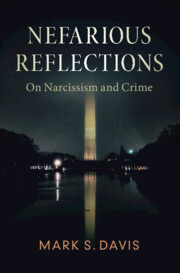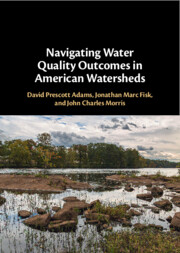Refine listing
Actions for selected content:
1299800 results in Books
Humans and Gods in Sophocles and Early Greek Thought
- Theology, Epistemology and Narrative
- Coming soon
-
- Expected online publication date:
- June 2026
- Print publication:
- 30 June 2026
-
- Book
- Export citation
Capabilities at Work
- The Added Value of the Capability Model for Well-Being and Work
- Coming soon
-
- Expected online publication date:
- June 2026
- Print publication:
- 30 June 2026
-
- Book
- Export citation
The Psychology of Hunger and Starvation
- Coming soon
-
- Expected online publication date:
- June 2026
- Print publication:
- 30 June 2026
-
- Book
- Export citation

The Spoils of Poynton
- Coming soon
-
- Expected online publication date:
- June 2026
- Print publication:
- 30 June 2026
-
- Book
- Export citation

Equivariant Principal ∞-Bundles
- Coming soon
-
- Expected online publication date:
- June 2026
- Print publication:
- 30 June 2026
-
- Book
- Export citation
MCQs for Intensive Care Medicine
- Coming soon
-
- Expected online publication date:
- June 2026
- Print publication:
- 30 June 2026
-
- Book
- Export citation
A Kantian Theory of Moral Character
- Coming soon
-
- Expected online publication date:
- June 2026
- Print publication:
- 30 June 2026
-
- Book
- Export citation

The Elephants in the Room
- How Trump Voters Seized the Party from Republican Leaders
- Coming soon
-
- Expected online publication date:
- June 2026
- Print publication:
- 18 June 2026
-
- Book
- Export citation
The Cambridge Handbook of the Minimalist Program
- Coming soon
-
- Expected online publication date:
- June 2026
- Print publication:
- 30 June 2026
-
- Book
- Export citation
Indigenous Environmental Rights
- Towards a Holistic Regime
- Coming soon
-
- Expected online publication date:
- June 2026
- Print publication:
- 30 June 2026
-
- Book
- Export citation

Climate Change and the Voiceless
- Protecting Future Generations, Wildlife, and Natural Resources
- Coming soon
-
- Expected online publication date:
- June 2026
- Print publication:
- 30 June 2026
-
- Book
- Export citation

The Minerva Press under William Lane
- Women Authors and Novel Genres, 1782-1802
- Coming soon
-
- Expected online publication date:
- June 2026
- Print publication:
- 30 June 2026
-
- Book
- Export citation

Who Thinks Like an Economist?
- How the Economist Mental Model Shapes Political Decisions
- Coming soon
-
- Expected online publication date:
- June 2026
- Print publication:
- 30 June 2026
-
- Book
- Export citation

Reprints and Revivals of Renaissance Drama
- Coming soon
-
- Expected online publication date:
- June 2026
- Print publication:
- 30 June 2026
-
- Book
- Export citation
Reading Keats's Letters
- An Epistolary Poetics
- Coming soon
-
- Expected online publication date:
- June 2026
- Print publication:
- 30 June 2026
-
- Book
- Export citation
Family Law
- Coming soon
-
- Expected online publication date:
- June 2026
- Print publication:
- 30 June 2026
-
- Textbook
- Export citation
Embattled Belief
- Religion and the British Army from Korea to Afghanistan
- Coming soon
-
- Expected online publication date:
- June 2026
- Print publication:
- 30 June 2026
-
- Book
- Export citation

Nefarious Reflections
- On Narcissism and Crime
- Coming soon
-
- Expected online publication date:
- June 2026
- Print publication:
- 30 June 2026
-
- Book
- Export citation

Navigating Water Quality Outcomes in American Watersheds
- Coming soon
-
- Expected online publication date:
- June 2026
- Print publication:
- 30 June 2026
-
- Book
- Export citation

Teaching Strategies in the 21st Century
- Where to Now?
- Coming soon
-
- Expected online publication date:
- June 2026
- Print publication:
- 30 June 2026
-
- Textbook
- Export citation
